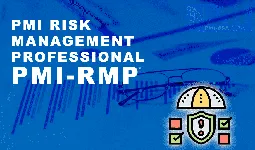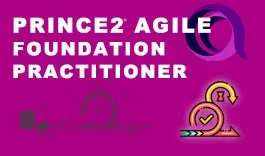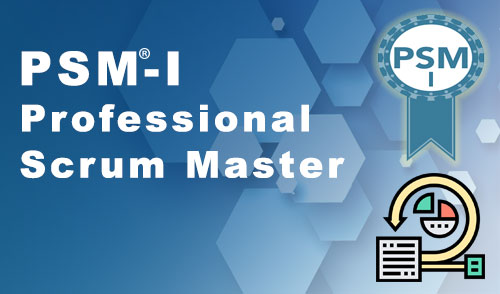Top Git Interview Questions and Answers [Updated 2024]
-
 By Sushmith
By Sushmith - Published on Oct 7 2022
![Top Git Interview Questions and Answers [Updated 2024] Top Git Interview Questions and Answers [Updated 2024]](https://d2ds8yldqp7gxv.cloudfront.net/Blog+Images/416.webp)
Table of Contents
What is GIT?
GIT is used as a version control system to track the changes in commuter files in real time. In general, GIT is mostly used for managing the source code of a package.
It provides a local host as well as an online cloud host. User history and other catch files are stored on your computer. GIT is free open-source software that developers use as a tool to track different versions of code and collaborate with other developers.
This article, containing the most commonly asked Git interview questions, can benefit everyone who wants to ace their Git interviews on the first go.
Basic GIT interview questions and answers
Here are some of the most commonly asked basic level git interview questions.
1) What is GIT?
Git is a version control system that is used to manage and track changes in computer files and to assist in coordinating work among multiple people on a project while analyzing development over time. Git is also used as a tool that aids in the administration of source code in computer programming.
2) What is VCS (Version Control System)?
A version control system is a system that records the changes made to a set of files to help you recall the versions later. By this, the history of code can be saved as a set of different versions with the development of the project. This helps developers easily fix bugs and declare new codes with fewer errors.
3) Describe the Git repository.
A repository is a type of directory where Git stores all the files related to the project. Git can save data to both local and remote repositories.

4) What is GitHub?
GitHub is a service provider for hosting version control of any working project. GitHub makes use of Git to provide such a facility.
5) What benefits do GIT users employ?
- It is open-source to every user.
- Easy collaboration with the project team.
- Keeps the source code updated in real time.
- Detailed branching facilities.
6) Brief about "git merge conflict"
When Git is incapable of resolving the differences between two constraints automatically, such occurrences of events are called "git merge conflicts."
The merge conflict does not occur only when the constraints are on different branches.
7) What is a conflict in Git?
Conflicts in Git usually occur while working in a team. When two separate branches of the same team environment meet with the same line in a file, or when one file on one branch is deleted but the same is updated on a different branch, a conflict occurs.
Such conflicts must be rectified and solved manually because Git cannot analyze which change should be given precedence.
8) How can conflicts in Git be resolved?
Resolving conflicts in Git can be done by following the following steps:
- Identify the cause of the conflict.
- Declare the changes that are to be made to the files.
- Update the changed files using the "git add" command.
- Use "git commin" command; commit the changes to the file to the repository.
9) What language is used in Git?
Since runtime overhead commonly occurs in high-level languages, using the C language helps you reduce such occurrences. Git is fast and reliable, which is made possible by using the C language.
Technical GIT interview questions and answers
Let’s look at some Technical Git interview questions most individuals have faced in their previous professional interviews.
1) What is the difference between "git pull" and "git fetch" commands?
The "git fetch" command is a visual representation command that only provides the user with a means to view the downloaded data. This command downloads new data and codes for any working files from a remote repository, only to display them for the users.
The "git pull" command helps users download a working file into the local repository from any remote repository. This command also helps users to download and merge files and data. If this influences any changes to your working files, use the "git slash" command to hide local changes.
2) How will you recover a branch if it is deleted from the local machine after pushing changes to the central repository?
When a branch is accidentally deleted from the local repository, it can be recovered by checking out the latest commit of the particular branch and then checking it out as a new branch.
3) What is a Git directory?
A Git Directory is a storage unit where the metadata and the object database of a project are stored. ".git/" is the folder for the Git repository for a project.
4) How do you create a branch in Git?
To perform branching in Git, the best way is to first implement the main branch and then have another branch implement the changes that are to be made.
5) How to setup a Git repository?
Using the "git init" command, you can add an empty repository to the directory in Git.
Advanced GIT interview questions and answers
The following questions are some of the most commonly asked Git interview questions for developers.

1) How do you fix a broken commit?
In Git, to fix a broken commit, one can use the "git commit --amend" command. As a result, the staged changes will be combined with the previous version of the commits as a result of this. This command will avoid creating a new commit to fix the changes.
2) How can you recover an un-merged branch that was deleted?
Using the "git reflog" command, one can initiate the recovery of a deleted branch. With this, all the references to locally recorded logs will be listed. Then, using the "git checkout" command, you can recover the deleted branch by checking the history.
3) Describe the stages of a merger conflict.
The process of merge entering a conflict stage can be explained in two stages:
I- At the start of merging
In a working directory, if the merge changes are at the initial stage of the current project, the merge would fail. In such cases, the arising conflicts happen due to unresolved changes. These changes must be made using different git commands.
II- In the process of merging
When the merging fails in the process, it indicates that there is a conflict between the local branch and the merging branch. In such a scenario, Git is capable of fixing errors, but some things must be fixed manually to resolve the conflict files.
4) What do you understand about the git stash drop?
The git stash drop command helps users to eliminate a targeted stash from the working directory. Users can use the stash commands to remove an unused stash or to eliminate a targeted stash from the directory or the list. By using the command, the changes are restored and the targeted stash is eliminated.
5) What does the commit object consist of?
Every commit object contains trees; some of the trees represent the project directory structure, while some of the other trees contain blob objects from the same dictionary.
6) What is a "detachable head"?
When a head in a branch is directly directed towards a commit, such heads are called detached heads. The head can be said to be attached only if it points directly to a commit.
7) What is the benefit of a version control system?
Most software development teams prefer using software with version control. Version control helps developers take action faster. This allows for the preservation of the efficiency of a software team by adding more developers and increasing the team's strength.
8) What work is restored when you retrieve a deleted branch?
The saved stashed files from the stash index can be recovered, and the files that were untracked will be lost.
Conclusion
Cracking an interview in the technical field can be a very difficult task to achieve. With this article, you can get familiar with the most commonly asked basic, technical, and advanced interview questions.
Since the scope for web-based engines and software developers is gaining a lot of career openings, this allows every developer to take advantage of the opportunity to prove their skills at the right place for their career.
The GIT interview questions and answers help you attain a set of ideas on what kinds of questions can be asked. By making yourself familiar with the most commonly asked questions and answers, one can make sure to clear the interview with ease.
For better practice, it is suggested to make a list of your own Got interview questions. This can be a good practice to take your interview preparation a step further. By researching and preparing GIT interview questions, you get an idea of what the other individual candidates have faced in the past. This helps you gain experience in mapping and acing your Git interview.
Learn and master the skills in software development by enrolling to our Agile Management course of DevOps Certification Training.
To help you understand more clearly about software development, here is a DevOps career guide and Top DevOps Interview Questions.
Subscribe to our Newsletters
Popular Programs
PSM® - Professional Scrum Master Certification
Live Virtual Training
- 4.4 (75 + Ratings)
- 13k + Learners
Trending Posts
DMAIC Methodology - The Ultimate Guide
Last updated on Oct 29 2024
DevOps Vs Agile Differences Explained
Last updated on Nov 18 2022
What is a Product Owner - Role, Objectives and Importance Explained
Last updated on Oct 17 2023
Essential Tools for Agile Project Management 2024
Last updated on Mar 15 2024
Scrum Interview Questions and Answers 2024
Last updated on Feb 12 2024
Scrum Ceremonies Guide
Last updated on Jun 6 2023
Categories
- Agile Management 54
- AI and Machine Learning 42
- Big Data 53
- Business Management 51
- Cloud Computing 44
- Digital Marketing 56
- Information Security 8
- IT Hardware and Networking 17
- IT Security 103
- IT Service Management 29
- Leadership and Management 1
- Microsoft Program 2
- Other 43
- Programming Language 31
- Project Management 162
- Quality Management 75
- Risk Management 8
- Workplace Skill Building 2
Trending Now
List Of Traits An Effective Agile Scrum Master Must Possess
ArticleDevOps Vs Agile Differences Explained
ArticleDevops Tools Usage, and Benefits of Development Operations & VSTS
ArticleAgile Scrum Methodology - Benefits, Framework and Activities Explained
ArticleGuide to Agile Project Management 2024
Article10 best practices for effective DevOps in 2024
ArticleGuide to Becoming a Certified Scrum Master in 2024
ArticleWhy Should You Consider Getting a Scrum Master Certification?
ArticleCSM vs CSPO: Which Certification is Right for You?
ArticleAgile Manifesto - Principles, Values and Benefits
ArticleAgile Methodology Explained in Detail
ArticleAgile Project Management Explained
ArticleEssential Tools for Agile Project Management 2024
ArticleEverything about Scrum Methodology
ArticleScrum Workflow - A Step by Step Guide
ArticleLatest Agile Interview Questions and Answers To Look For In 2024
ArticleScrum Interview Questions and Answers 2024
ArticleTop Scrum Master Responsibilities 2024 (Updated)
ArticleProduct Life Cycle in Marketing: Essential Strategies for Product’s Success
ArticleDevOps Engineer Interview Questions - Best of 2024
ArticleDevOps Engineer - Career path, Job scope, and Certifications
ArticleBusiness Agility Guide - Importance, Benefits and Tips
ArticleScrum vs Safe – Differences Explained
ArticleCSM vs. PSM - Which Scrum Certification is Better?
ArticleSAFe Implementation Roadmap Guide
ArticleAgile Release Plan Guide
ArticleAgile Environment Guide
ArticleAgile Coaching Guide - Best Skills for Agile Coaches
ArticleAgile Principles Guide
ArticleSAFe Certifications List - Best of 2024
ArticleAgile Prioritization Techniques Explained
ArticleScrum Ceremonies Guide
ArticleProduct Owner Certifications List
ArticleScrum of Scrums Guide
ArticleWhat is DevSecOps and its Importance
ArticleData Processing - A Beginner's Guide
ArticleDevOps Career Guide 2024
ArticleStakeholder Engagement Levels Guide
ArticleScrum Master Career Path Explained
ArticleScrum Career Path Explained
ArticleA guide to Agility in cloud computing
ebookProduct Roadmap: An Ultimate Guide to Successful Planning and Implementation
ArticleDMAIC Methodology - The Ultimate Guide
ArticleProduct Life Cycle Strategies: Key to Maximizing Product Efficiency
ArticleScrum Master Salary Trends in 2024
ArticleProduct Life Cycle Model: A Guide to Understanding Your Product's Success
ArticleWhat is a Product Owner - Role, Objectives and Importance Explained
ArticleSuccessful Product Strategies for Introduction Stage of Product Life Cycle
ArticleUnlocking Career Opportunities in Product Management: Your Roadmap to Success
ArticleSaturation Stage of Product Life Cycle: Complete Guide
ArticleCutting-Edge Technology of Google Cloud
ArticleHow to Write an Executive Summary for a Business Plan?
ArticleImportance of Procurement Management Software in Modern Business
Article
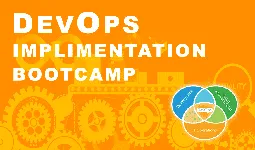

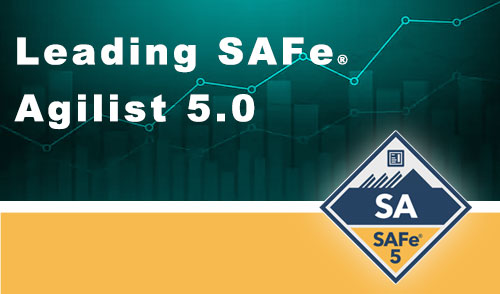

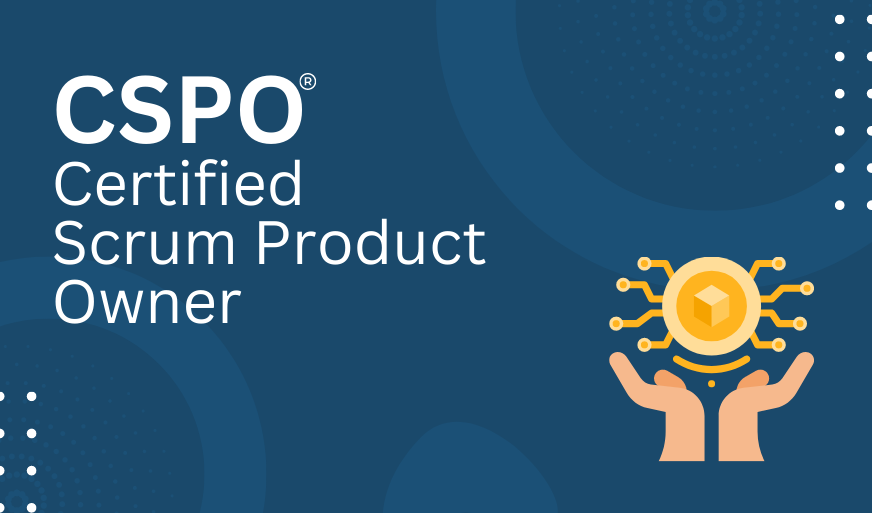
.webp)

